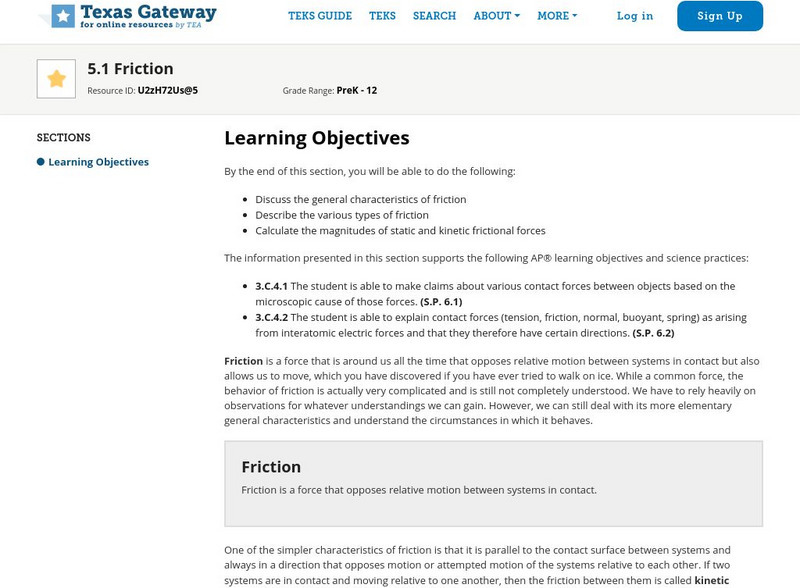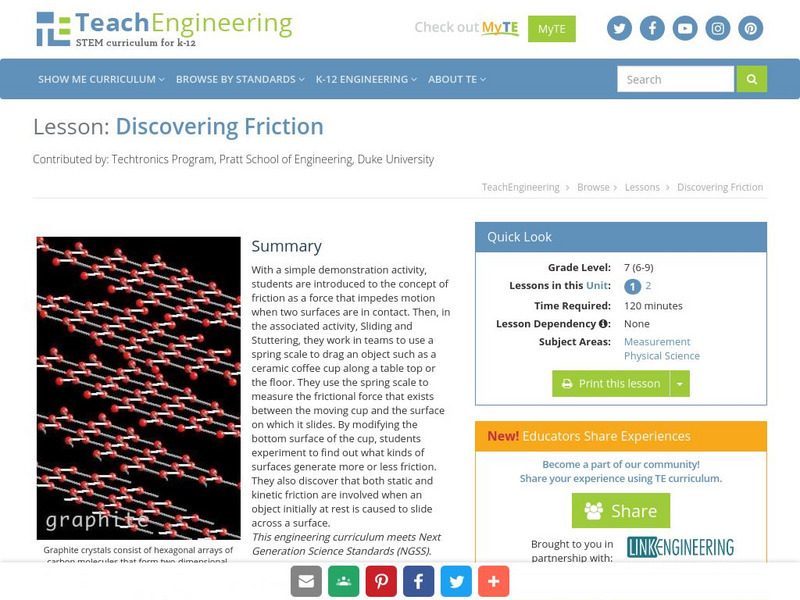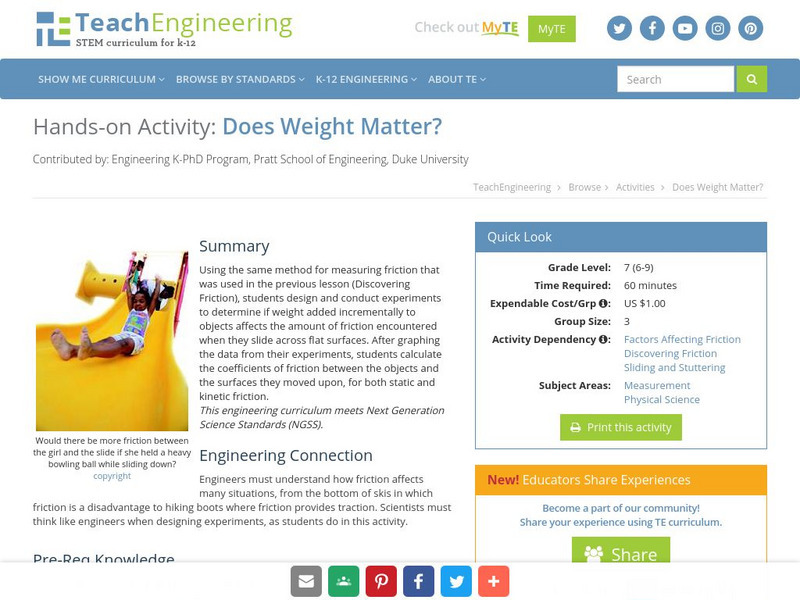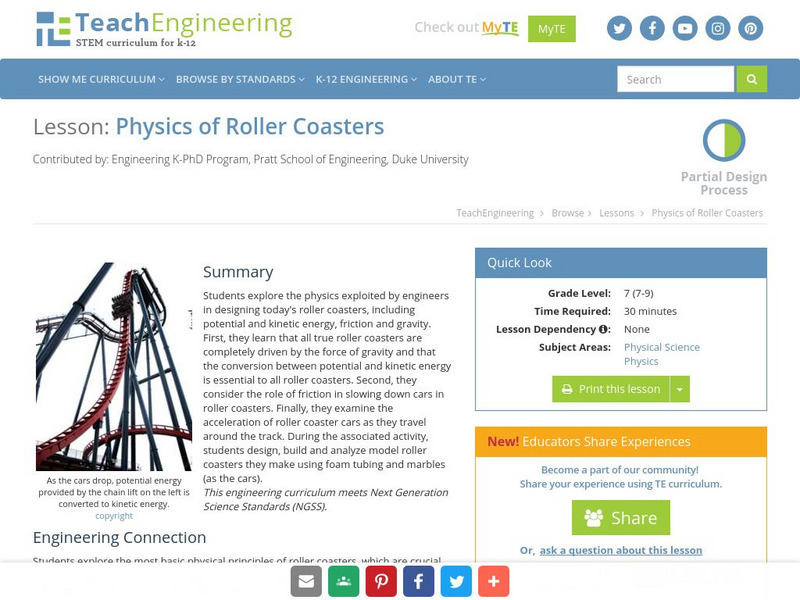Hi, what do you want to do?
Texas Education Agency
Texas Gateway: 5.1 Further Applications of Newton's Laws: Friction
By the end of this section, you will be able to discuss the general characteristics of friction, describe the various types of friction, and calculate the magnitudes of static and kinetic frictional forces.
TeachEngineering
Teach Engineering: Discovering Friction
With a simple demonstration activity, students are introduced to the concept of friction as a force that impedes motion when two surfaces are in contact. Then, in the Associated Activity (Sliding and Stuttering), they work in teams to...
TeachEngineering
Teach Engineering: Factors Affecting Friction
In this lesson, students use previous knowledge about friction to formulate hypotheses concerning the effects of weight and contact area on the amount of friction between two surfaces. In the Associated Activities (Does Weight Matter?...
TeachEngineering
Teach Engineering: Does Weight Matter?
Using the same method for measuring friction that was used in the previous lesson (Discovering Friction), students design and conduct an experiment to determine if weight added incrementally to an object affects the amount of friction...
TeachEngineering
Teach Engineering: Physics of Roller Coasters
Young scholars explore the physics utilized by engineers in designing today's roller coasters, including potential and kinetic energy, friction, and gravity. First, students learn that all true roller coasters are completely driven by...
Khan Academy
Khan Academy: A Ramp in an Administrative Office
This passage will test your knowledge on forces on inclined planes.
Physics Classroom
The Physics Classroom: Energy Conservation on an Incline
This site is a discussion and animation about whether the total mechanical energy of a cart rolling down an incline is conserved, which can be determined if there are any external forces acting upon it.











